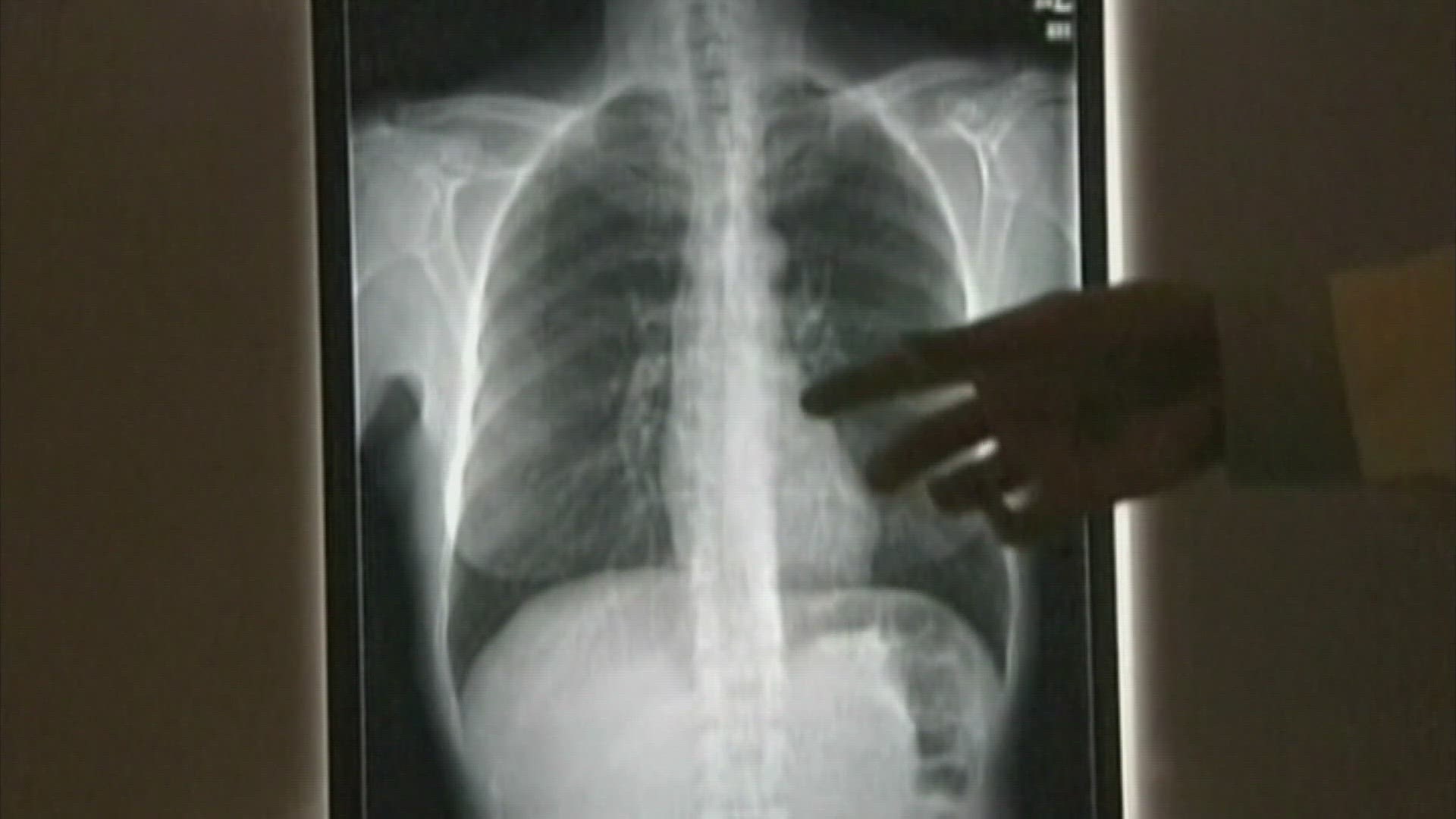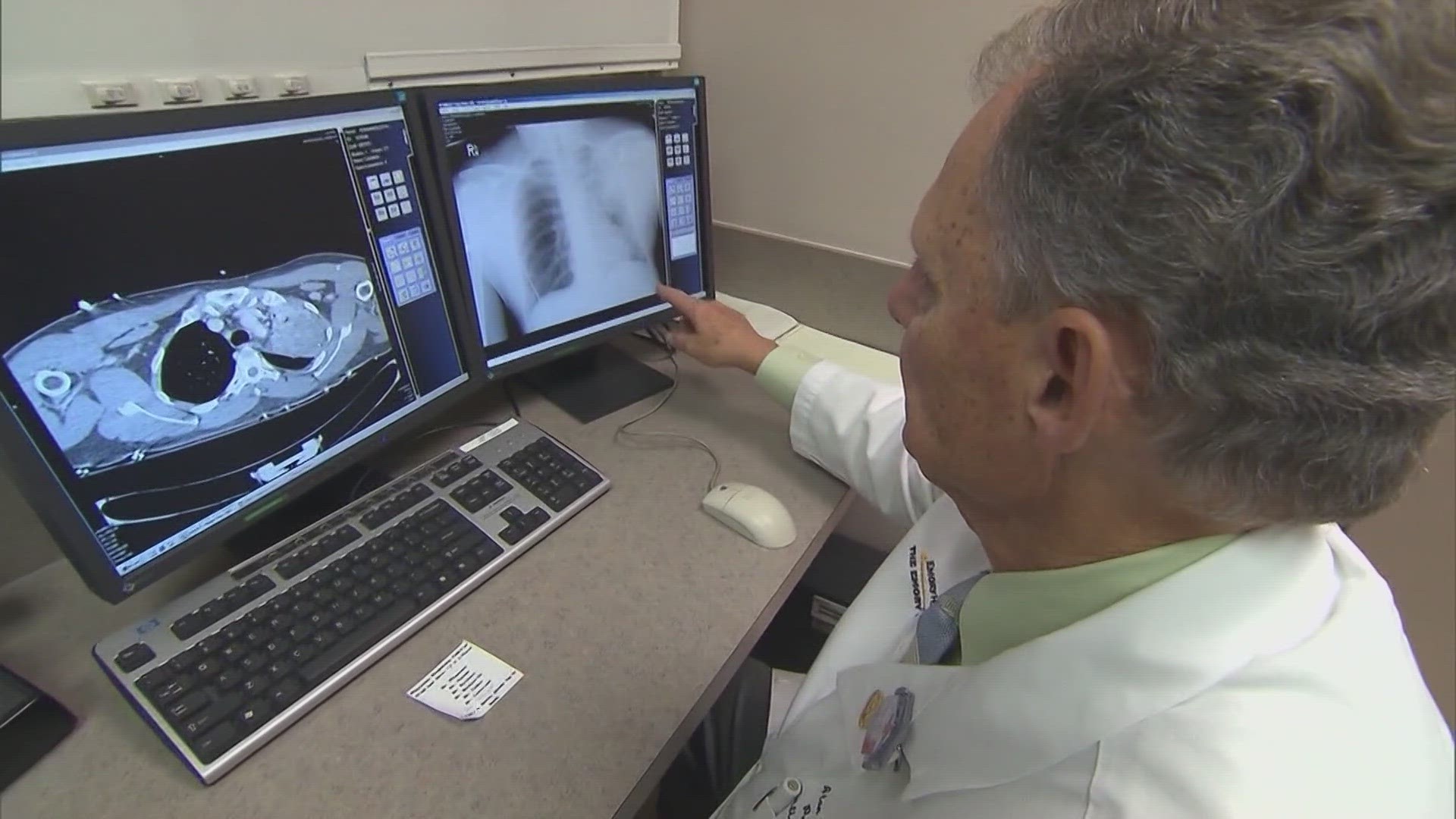PHOENIX — A new report found Arizona lags behind the rest of the country in lung cancer treatment and screening. November is Lung Cancer Awareness month and the American Lung Association said there’s an urgent need for more high-risk people to be screened for lung cancer to have a better chance at surviving the disease.
The report released in November revealed lung cancer screening in Arizona is only at 1.3%. So, the association is working with many partners to improve screening for lung cancer in Arizona. The new data, coming from American Lung Association’s sixth annual State of Lung Cancer report.
It examined new cases, survival, early diagnosis, surgical treatment, lack of treatment and screening rates. The data also showed Arizona is ranked 46th in the nation for lack of treatment and 41st for surgical intervention.
JoAnna Strother, Senior Director for Efficacy with the association, said high risk people should be screened.
“High risk people are the ones that should be screened," Strother said. "Of course anybody can get lung cancer, but people who have a history of smoking or people who have been around smoke, definitely those high risk populations, should have conversations with their physicians to see if they qualify for a lung cancer screening.”
The report revealed hopeful signs, and found people are surviving lung cancer more often. The five year survival rate used to be 22 percent and is now up to nearly 27 percent. It also found survival rates are improving for people of color. And the five year lung cancer survival rate for that group has gone up by about 17 percent in the last two years.
Lung cancer rates are unfortunately rising higher in some groups. The American Cancer Association showed higher lung cancer rates in women than in men, is continuing in adults 50 years and younger and in women ages 50 to 54. The findings released earlier in 2023 in the Journal of the American Medical Association, Oncology. The American Cancer Association said the historical pattern of lung cancer is now reversed and experts don’t know why it's happening.
In Scottsdale, Envita Medical Center said one of their focuses is on personalized oncology. Dr. Dino Prato, Envita's Founder and CEO, believes not enough patients are getting diagnosed. And risks for the disease, Dr. Prato said, are smoking and being around people who smoke, and then others like environmental toxins, and lung infections. His team offers a blood draw that Dr. Prato said can help identify early stage lung cancers and others.
“You screen one of 52 cancers right away," Dr. Prato said. "If that comes back positive, then we run another blood test to identify with very high accuracy, that there might be pancreatic, lung, breast, whatever type of cancer is there. Once we know that cancer is there, then we can run tests to see if it’s metastasized or spread beyond the tumor.”
Experts urge anyone experiencing symptoms like a persistent cough, wheezing, coughing up blood, unexplained weight loss, chest pain and exhaustion, to talk with their primary care doctor about a lung cancer screening.
Up to Speed
Catch up on the latest news and stories on our 12News YouTube playlist here.


